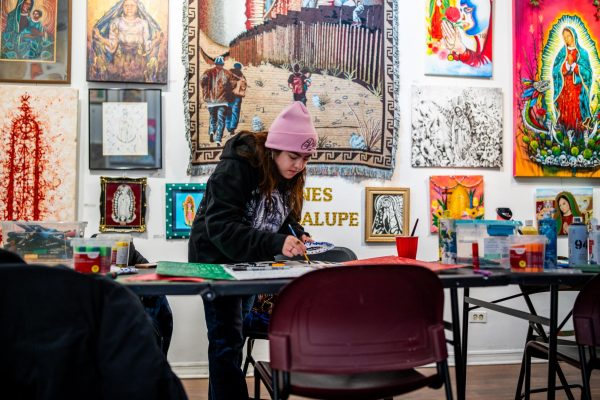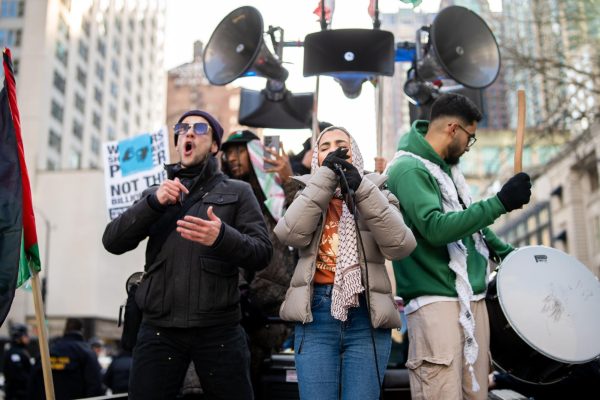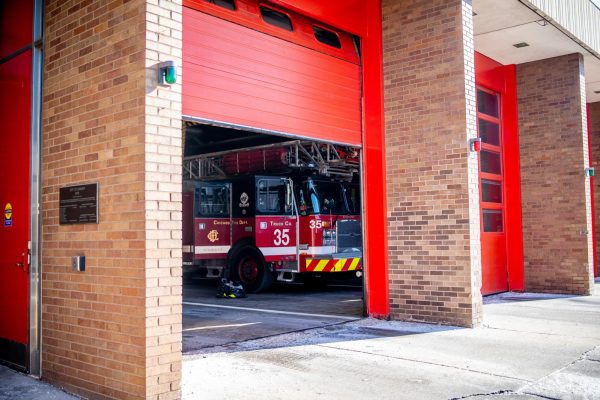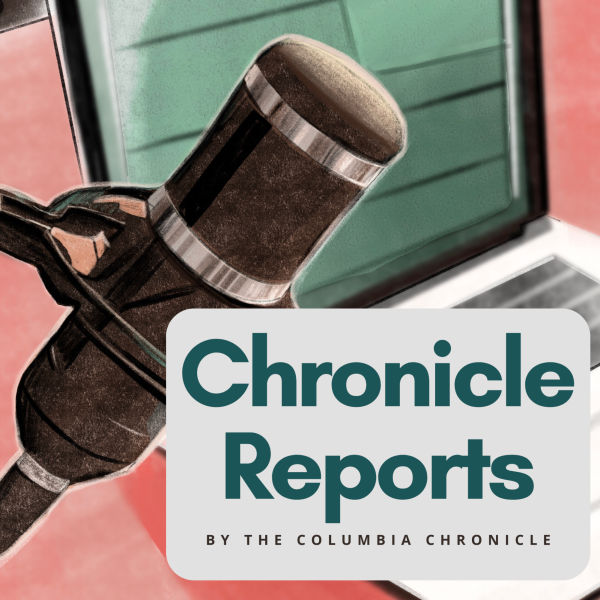The podcasters next door: Women-run shows recorded in Chicago you won’t want to skip
July 2, 2021
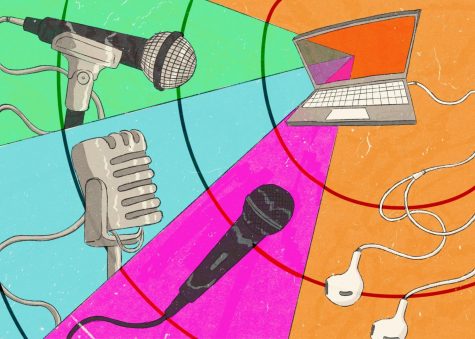
Editor’s note: This article is one in a series of stories from the Communication Department’s award-winning Echo magazine, featured this summer on the Chronicle site.
_____________________________________
You’ve been encouraged to shop locally. Now it’s time to listen locally. Chicago is home to four compelling women podcasters who have gathered microphones and niche ideas in their living rooms. So, you can clean the house or drive to the grocery store, all while supporting women in media.
Podcasts are becoming increasingly popular among this demographic. Edison Research found that 36% of females age 12+ in the U.S. were monthly listeners in 2020, up from 29% in 2019. And although 79% of the top-charting podcasts are hosted by men, according to TheWrap’s 2020 Special Report, women are taking the mic.
Press play on these female-led podcasts covering topics from politics to pop culture.
‘Nerdette’
Greta Johnsen, who refers to herself as a “grandma of podcasting,” launched her podcast in 2013 with the goal of encouraging people to embrace their inner geek. She interviews guests such as Bill Nye to discuss climate change and bow ties and writer Gillian Flynn to share her experience with conspiracies and comics — proving it’s cool to be smart.
How did you come up with the name Nerdette?
It sounds like it’s a feminine suffix, but -ette is actually diminutive. So it’s like, everybody’s a little nerdy about something. Everybody has that thing that they’re really excited about, and that’s what we want to talk about.
Who’s a memorable guest you’ve had?
Tom Hanks. We interviewed him about four years ago about typewriters, and it was before he wrote his book with a typewriter on the cover. Very few people knew he was obsessed with typewriters at that time. So to just be like, ‘Hey, Tom, will you talk to us about typewriters?’ He was so thrilled. It was so magical.
Tell me about your book club.
It’s like the book club where you don’t have to put your pants on. You can meet our deadline and call in, but if you don’t get to it, the episode is still going to be there for you to enjoy it in [the future].
‘CrossXCultured’
Nothing is off limits when it comes to this dynamic duo of Nigerian-American women. Erika Mona and Dammy Ojulari have been bridging the gap between pop culture and their own culture since March 2019. Their unfiltered segments on celebrity drama, and their choice of the ‘Dumb-ass of the Week’ are complemented by lessons on injustice in the world today.
You frequently talk about white privilege. Have you experienced it in the podcast industry?
Dammy Ojulari: I don’t think there has been a direct impact, but I do think in terms of sponsorship and [in the] advertising realm, it definitely plays a part. Because I feel that oftentimes, white people get embraced for a lot of mediocrity, and it just gets publicized and turned into this huge thing. There are millions of podcasts that get funding, but not a lot of Black or ethnic podcasts get that type of funding and attention.
Do you feel you hold a responsibility to have content for women like you?
DO: With us being cross-cultured, it kind of spurred from this idea that we are Nigerian-American women, and I don’t think, especially culturally, there’s enough people bridging that gap of being [a] Millennial in this time, in this era, and still having to uphold what our customs and values are.
What do you hope for the future of your podcast?
Erika Mona: Great growth and exposure. I would like that when you open up Apple Podcasts, Spotify or SoundCloud, you see ‘CrossXCultured’ podcast, OK? For me, that is the goal — for it to be an empire, a household name. This is bigger than just a small thing we do on our own in our apartments.
‘Talking at Tiffany’s’
Tiffany Goldstein began blogging in 2014 as a college student, then transitioned to the microphone in September 2020. Using her network of just over 13,000 Instagram followers, Goldstein is joined by a guest each week to talk about their passion projects. She focuses on entertainment and music and gives tips to fellow entrepreneurial Millennials.
What’s the difference between blogging and podcasting?
I love blogging, but I think I truly found my passion in podcasting because I am that outgoing and outspoken type of girl. I finally found an outlet that shows my true self and really connects with my readers and my followers. I could talk about reality stars and the Kardashians for days, and now I can do it, and people love to tune in.
What have you learned about yourself since you started your podcast?
This industry is so competitive and saturated that for the longest time, I was waiting for somebody to give me a chance. But 2020 opened my eyes. We don’t know when the next opportunity is going to come knocking on our door because we’re living in a pandemic, so I took it upon myself to make the career that I want.
What is your favorite part of having your own show?
I love that I can wear all the hats. I am the booker, I am the producer, I am the editor, I am the host. When my podcast gets write-ups, it’s so rewarding. I’m like, ‘Wow, I made that happen.’ There’s no one stopping me saying, ‘Hey, you can’t talk about this.’ It just allows me to be me. If you want filtered stuff, go turn on ‘E! News,’ turn on ‘Entertainment Tonight.’
_____________________________________
Inspired to start a podcast on your own?
Take notes from these pros and you’ll have a bedroom-turned-studio in no time.
Quality is important but doesn’t have to break the bank. Mona and Ojulari got their equipment from Amazon, where you can find one of the most frequently used microphones for $100: the AudioTechnica ATR2100x-USB.
Set up shop in the smallest room you have. Goldstein finds recording in her closet captures the best audio because the sound doesn’t get lost in the space. If you don’t have enough space in your closet for recording, she recommends putting a sock over your microphone and a blanket over your head to block out excess sound.
Goldstein recommends the audio platform Anchor, which offers free recording and editing tools to use on your phone or computer. You can also use Anchor to distribute your show to major podcast platforms. If you are willing to spend a bit more for editing software, Goldstein recommends using Adobe Premiere.


